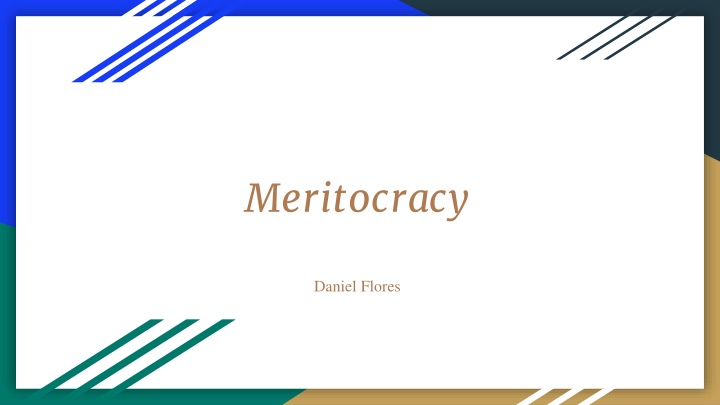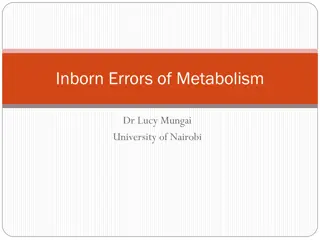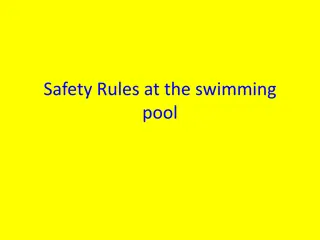Swimming Training and Energy Metabolism Overview
In this comprehensive guide, explore the training methodologies and energy metabolism principles utilized by Corrado Rosso. Topics covered include planning systems, microcycles, macrocycles, and energy zones. Gain insights into the training termigonology, lactate zones, warm-up strategies, and recovery techniques in swimming. Understand the integration of various training systems for optimal performance.
Download Presentation

Please find below an Image/Link to download the presentation.
The content on the website is provided AS IS for your information and personal use only. It may not be sold, licensed, or shared on other websites without obtaining consent from the author.If you encounter any issues during the download, it is possible that the publisher has removed the file from their server.
You are allowed to download the files provided on this website for personal or commercial use, subject to the condition that they are used lawfully. All files are the property of their respective owners.
The content on the website is provided AS IS for your information and personal use only. It may not be sold, licensed, or shared on other websites without obtaining consent from the author.
E N D
Presentation Transcript
Meritocracy Daniel Flores
Quick Lil Definition Meritocracy is a system in which people believe that you should get power, success, or awards due to the fact that you earned it and/or your skills. The desired purpose of this system was to allow everyone, no matter what class you re in, to have a fair chance of succeeding.
A Lil History of Meritocracy Meritocracy has been present for many centuries Started primarily in Ancient China when it was advocated by Confucius who believed that those who are in power should be given that position because of merit and not inherited status. After that, meritocracy spread to Europe in the 17th century, went on to West Africa in the 18th century, and so on. Though, the one who really coined this term was sociologist and reformer Michael Dunlop Young in 1958 through his book The Rise of the Meritocracy.
Effects of Meritocracy in Education and Wealth Someone s class largely affects their education Students who come from wealthy families are shown to have a better advantage than those who come from a low-income family in education. On average, children whose parents make more than $200k/year score about 250 points higher on the SAT than children whose parents make $40k-$60k a year. This study relates to meritocracy because those students who come from wealthy families tend to have a better shot at acquiring a higher education. This usually gets overlooked because those who come from low-income are now looked at in way that they had the same fair shot in education as wealthy students which results in the toxic belief of meritocracy.
Effects of Meritocracy in Education and Wealth Students from wealthy families have a 70 percent chance of completing at least two years and a 43 percent chance of completing at least four years of college. Students from low-wealth families only have a 41 percent chance of completing 2 years and a 24 percent chance of completing at least 4 years. More wealth = Easier access to resources (tutoring, better education, connections) Less Wealth = Lack of resources (Hard to pay for tutors, lack of connections, lack of good educators) This relates to meritocracy because although low-income students would work as hard if not harder than wealthy students, statistics show that one has a clear advantage than the other which initially contradicts meritocracy and the belief that everyone, no matter their class, has a fair shot.
Effects of Meritocracy in Education and Wealth With the belief in meritocracy, comes ignoring nepotism Nepotism refers to hiring or accepting someone into a position due to one of their family members working there. Nepotism can be problematic because if someone gets a position due to a family member, there could have been more competent and qualified applicants. Nepotism relates to education because it is closely related to legacy, in which some students get accepted to a college because their parents attended that school, ignoring most of the student s merit. On that note, meritocracy relates to nepotism because students don t have a fair advantage due to nepotism.
Meritocracy and Overall Wealth Inequality Meritocracy also plays a big role in wealth. The problem with meritocracy is that it is a false system in which was set up to make you think that you had some form of merit that got you far. In a survey regarding republicans and democrats, participants were asked why a person is rich. Majority of republicans said a person is rich because they worked harder, whereas most Democrats said it was because they had disadvantages in life. Essentially, with the belief in meritocracy, you start to think that poor people can t succeed because they didn t work hard enough or are also seen as lazy. With this system, it is inherently attempting to create an elite status of people making them think that they are special in some way when it reality, they re situated in all the right ways. With this in mind, meritocracy goes hand-in-hand with how wealthy and poor people think. Wealthy people who have gotten inheritance think they are great workers whereas someone who is poor and has failed tend to feel shame due to their failures which are both a toxic way to think.
Sources Used https://www.youtube.com/watch?v=bTDGdKaMDhQ - Slide #7 https://www.psychologytoday.com/us/blog/pulling-through/202003/the-lazy-poor-or-the-entitled-rich - Slide #7 https://www.psychologytoday.com/us/blog/cutting-edge-leadership/201210/is-nepotism-good-thing-or-bad - Slide #6 https://www.urban.org/sites/default/files/publication/89976/wealth_and_education_3.pdf - Slide #5 https://www.theatlantic.com/magazine/archive/2019/09/meritocracys-miserable-winners/594760/ - Slide #4























